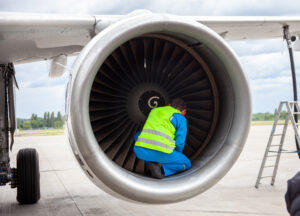Navigating complex aviation regulations
Have you got a question?
Aviation regulations in the European Union (EU) are among the most stringent in the world. This is in contrast to the rest of the world, where regulations are more relaxed. Regulations, particularly those involving safety and passenger rights, are complex and it is important aviation businesses understand this when defining their strategic and financial plans.
The EU has adopted a set of rules known as the Single European Sky (SES). These regulations were designed to improve safety, reduce costs, and increase the efficiency of air traffic. This regulatory framework does not stop at the EU border, it extends beyond.
The SES regulations have had a significant impact on the aviation market in the EU. Firstly, they have resulted in an increase in safety standards. Aircrafts are subject to greater scrutiny and must meet higher safety requirements.
Secondly, the SES regulations have had a significant economic impact. Airlines have to adhere to stricter guidelines which have allowed them to reduce costs by streamlining their operations. This has resulted in lower ticket prices for passengers and more new operators entering the market as they can start with technology without needing to change legacy systems. Whilst our team was at the CAPA Airline Leaders Summit in Budapest, this was one of the benefits of entering the aviation market.
There are significant impacts on the environment. By increasing efficiency, airlines have been able to reduce their fuel consumption and emissions. Many of the low-cost airlines have been able to show their sustainability due to this.
What are the key legal aspects regarding the safety standards expected in EU aviation regulation?
The SES regulations cover a range of areas, from aircraft design and maintenance to air traffic control and passenger safety.
Here are some of the key legal guidelines that companies must adhere to under the SES regulations:
- Air Traffic Management Requirements: Companies operating in the European Union airspace must comply with the air traffic management requirements set by the European Aviation Safety Agency (EASA) and the European Organisation for the Safety of Air Navigation (EUROCONTROL). These requirements include standards for communication, navigation, surveillance, and air traffic flow management.
- Safety Management System: Companies must establish and maintain a safety management system (SMS) to manage safety risks associated with their operations. The SMS must comply with the requirements set by EASA and include a safety policy, safety risk management, safety assurance, and safety promotion.
- Performance-Based Navigation: Companies must implement performance-based navigation (PBN) procedures to enhance safety, efficiency, and capacity of their operations. The PBN procedures must meet the performance requirements set by EASA and be approved by the national aviation authority of the Member State where the company is registered.
- Environmental Requirements: Companies must comply with environmental requirements set by the European Union, such as noise and emissions standards. They must also participate in the European Union Emissions Trading System (EU ETS) and report their emissions to the relevant authorities.
- Data Sharing: Companies must participate in data sharing initiatives to improve the efficiency and safety of air traffic management. This includes sharing flight data, weather data, and other relevant information with other companies and authorities.
- Service Provision: Companies must comply with the requirements for service provision set by the European Union, such as safety oversight, air navigation services, and meteorological services. They must also provide timely and accurate information to air traffic controllers and other relevant parties.
Airlines must comply with the SES regulations to ensure the safety, efficiency, and environmental sustainability of their operations in the European Union airspace. Understanding the legal requirements can be difficult and legal experts can help ensure that you meet the standards required.
You should be looking at policies that cover the above so you meet the standards set in the SES regulations.
Is it important to get expert legal advice regards the SES regulations?
Yes, it is important to get expert legal advice regarding the SES regulations.
The SES regulations are complex and constantly changing, so it is important to have an expert who understands the regulations and can advise on the best way to comply with them.
We can help with understanding the regulations, as well as providing advice on implementation and compliance. We can help to develop policies that cover safety, environmental compliance, data sharing, air traffic control procedures, and training.
Additionally, we can provide advice and support on any disputes which may arise regarding the SES regulations. This is important as the regulations are complex and can be difficult to interpret. Our experts review the situation and outline a strategy to respond to any dispute.
Why Oracle Solicitors?
We have years of collective experience in the team dealing with some of the largest airlines in the aviation industry. We provide quality commercial advice at competitive prices.
Get in touch or call us today on 020 3051 5060.
Book a call back
Share this article
Got a question?
Please complete this form to send an enquiry. Your message will be sent to one member of our team.
Related posts

Monitoring and protecting your Intellectual Property: The Why’s and How’s
Intellectual Property (IP) rights are business assets, and often the most valuable assets a business has. These protectable rights encompass patents, trademarks, copyrights,

Wallentin-Hermann vs Alitalia
Maritime transport can be considered a fundamental pillar of the global economy; however, its environmental impact raises significant concerns.

Tax Efficient Pension Planning?
With the speculation rife about the new Labour government’s potential changes to pension policies, planning for a tax-efficient retirement is more pertinent than

How understanding are employers obliged to be of menopausal symptoms?
Menopause is a natural change in women, which can result in a range of debilitating physical and/orpsychological symptoms such as headaches, hot flushes,


